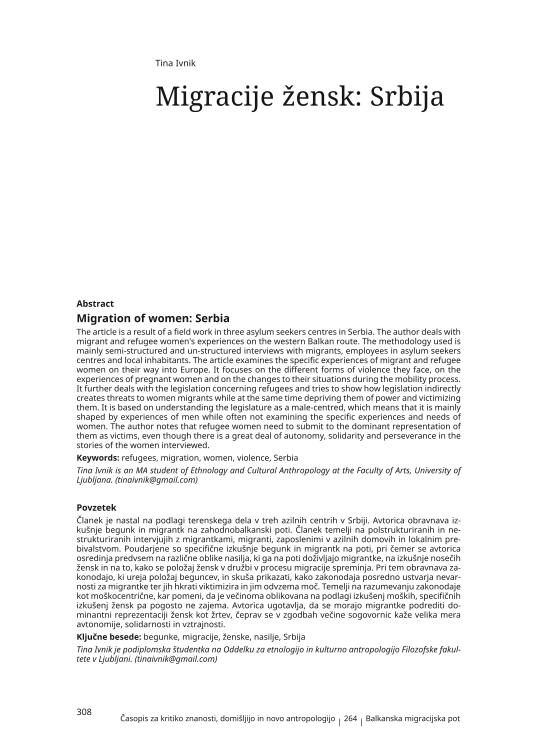The article is a result of a field work in three asylum seekers centres in Serbia. The author deals with migrant and refugee women's experiences on the western Balkan route. The methodology used is mainly semi-structured and un-structured interviews with migrants, employees in asylum seekers centres and local inhabitants. The article examines the specific experiences of migrant and refugee women on their way into Europe. It focuses on the different forms of violence they face, on the experiences of pregnant women and on the changes to their situations during the mobility process. It further deals with the legislation concerning refugees and tries to show how legislation indirectly creates threats to women migrants while at the same time depriving them of power and victimizing them. It is based on understanding the legislature as a male-centred, which means that it is mainly shaped by experiences of men while often not examining the specific experiences and needs of women. The author notes that refugee women need to submit to the dominant representation of them as victims, even though there is a great deal of autonomy, solidarity and perseverance in the stories of the women interviewed.




